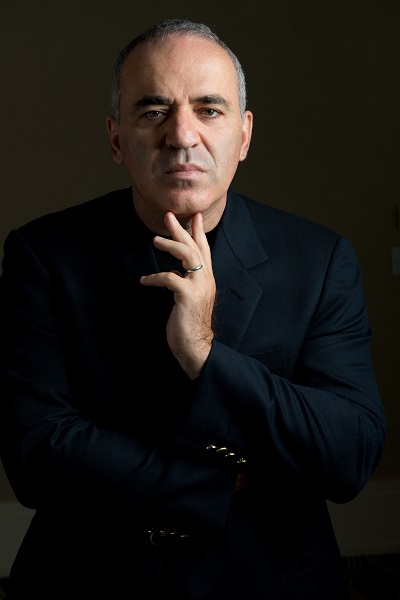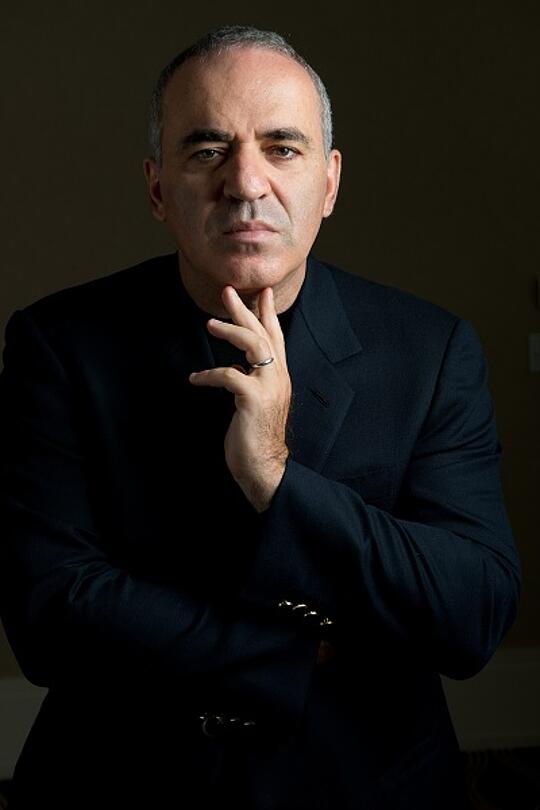Garry Kasparov
Talent requires hard work. Calculation requires evaluation. Good strategy requires good tactics to succeed.
Profil
Garry Kasparov came to international fame as the youngest world chess champion in history in 1985 at the age of 22. Eager for new challenges, he retired from professional chess in 2005 after a record 20 years as the world`s top-ranked player. Kasparov wasted no time after leaving chess, joking that he would be far busier as a retiree. He quickly became an important voice in the Russian pro-democracy movement against the repressive regime of Vladimir Putin.
In 2005 Garry Kasparov formed the United Civil Front, of which he is still the chairman, and co-led The Other Russia coalition that focused on uniting the Russian opposition to Putin under the banner of free and fair elections. Kasparov also turned his energy to writing and public speaking. “I have spent my life thinking about thinking,” he said, “and I find many others are as interested in the field of improving human performance as I am.” Kasparov’s keynote lectures and seminars on strategic thinking, achieving peak performance, and tech innovation have been acclaimed in dozens of countries. His 2007 book on decision-making, “How Life Imitates Chess” was translated into over 20 languages.
The Kasparov Chess Foundation was launched in New York City in 2002 with the purpose of bringing chess into the educational system in the USA and worldwide. Kasparov has long promoted the many benefits of chess for schoolchildren KCF’s program is now used in thousands of schools. KCF formed branches in Europe and Africa and will continue rapid expansion. Kasparov traveled to over a dozen countries to promote scholastic chess programs in 2012 alone.
Books:
- How Life Imitates Chess
- Garry Kasparov on Garry Kasparov, Part 1: 1973-1985
- Garry Kasparov on Garry Kasparov, Part 2: 1985-1993 (Everyman Chess)
- Garry Kasparov on Garry Kasparov, Part 3: 1993-2005
- Checkmate!: My First Chess Book (Everyman Chess)
- ...and much more
More Speeches:
- Strategy & Tactics
- Achieving Your Potential
- Leaders vs. Managers
- Success is in the Mind
- The Acceleration of Information
- Strategy for Decoding the Complexity of Life
- The Courage to Make Up Your Mind
- Human + Machine, the Future of Computer Technology
- Chess, Technology and Risk-Taking in Education
- Decision Making
- Asking the right questions
- Leadership
- Understanding Your Own Process


